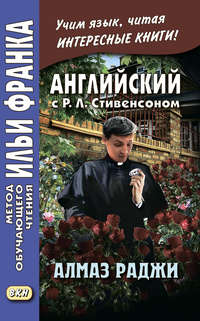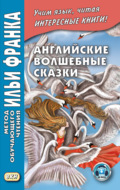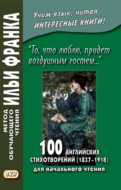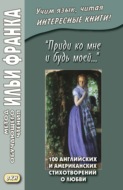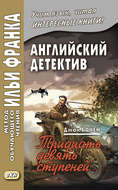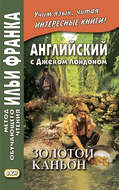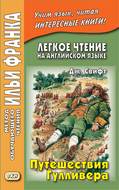Kitobni o'qish: «Английский с Р. Л. Стивенсоном. Алмаз раджи / R. L. Stevenson. The Rajah’s Diamond»
Пособие подготовил Андрей Бессонов
© И. Франк, 2010
© ООО «Восточная книга», 2010
Как читать эту книгу
Уважаемые читатели!
Перед вами – НЕ очередное учебное пособие на основе сокращенного (упрощенного, адаптированного и т. п.) авторского текста.
Перед вами прежде всего – ИНТЕРЕСНАЯ КНИГА НА ИНОСТРАННОМ ЯЗЫКЕ, причем на настоящем, «живом» языке, в оригинальном, авторском варианте.
От вас вовсе не требуется «сесть за стол и приступить к занятиям». Эту книгу можно читать где угодно, например, в метро или лежа на диване, отдыхая после работы. Потому что уникальность метода как раз и заключается в том, что запоминание иностранных слов и выражений происходит ПОДСПУДНО, ЗА СЧЕТ ИХ ПОВТОРЯЕМОСТИ, БЕЗ СПЕЦИАЛЬНОГО ЗАУЧИВАНИЯ И НЕОБХОДИМОСТИ ИСПОЛЬЗОВАТЬ СЛОВАРЬ.
Существует множество предрассудков на тему изучения иностранных языков: якобы их могут учить только люди с определенным складом ума (особенно второй, третий язык и т. д.), делать это нужно чуть ли не с пеленок и, главное, в целом это сложное и довольно-таки нудное занятие.
Но ведь это не так! И успешное применение Метода чтения Ильи Франка в течение многих лет доказывает: НАЧАТЬ ЧИТАТЬ ИНТЕРЕСНЫЕ КНИГИ НА ИНОСТРАННОМ ЯЗЫКЕ МОЖЕТ КАЖДЫЙ!
Причем
НА ЛЮБОМ ЯЗЫКЕ,
В ЛЮБОМ ВОЗРАСТЕ,
а также С ЛЮБЫМ УРОВНЕМ ПОДГОТОВКИ (начиная с «нулевого»)!
Сегодня наш Метод обучающего чтения – это почти триста книг на пятидесяти языках мира. И более миллиона читателей, поверивших в свои силы!
Итак, «как это работает»?
Откройте, пожалуйста, любую страницу этой книги. Вы видите, что текст разбит на отрывки. Сначала идет адаптированный отрывок – текст с вкрапленным в него дословным русским переводом и небольшим лексико-грамматическим комментарием. Затем следует тот же текст, но уже неадаптированный, без подсказок.
Если вы только начали осваивать английский язык, то вам сначала нужно читать текст с подсказками, затем – тот же текст без подсказок. Если при этом вы забыли значение какого-либо слова, но в целом все понятно, то не обязательно искать это слово в отрывке с подсказками. Оно вам еще встретится. Смысл неадаптированного текста как раз в том, что какое-то время – пусть короткое – вы «плывете без доски». После того как вы прочитаете неадаптированный текст, нужно читать следующий, адаптированный. И так далее. Возвращаться назад – с целью повторения – НЕ НУЖНО! Просто продолжайте читать ДАЛЬШЕ.
Сначала на вас хлынет поток неизвестных слов и форм. Не бойтесь: вас же никто по ним не экзаменует! По мере чтения (пусть это произойдет хоть в середине или даже в конце книги) все «утрясется», и вы будете, пожалуй, удивляться: «Ну зачем опять дается перевод, зачем опять приводится исходная форма слова, все ведь и так понятно!» Когда наступает такой момент, «когда и так понятно», вы можете поступить наоборот: сначала читать неадаптированную часть, а потом заглядывать в адаптированную. Этот же способ чтения можно рекомендовать и тем, кто осваивает язык не «с нуля».
Язык по своей природе – средство, а не цель, поэтому он лучше всего усваивается не тогда, когда его специально учат, а когда им просто пользуются – либо в живом общении, либо погрузившись в занимательное чтение. Тогда он учится сам собой, подспудно.
Для запоминания нужны не сонная, механическая зубрежка или вырабатывание каких-то навыков, а новизна впечатлений. Чем несколько раз повторять слово, лучше повстречать его в разных сочетаниях и в разных смысловых контекстах. Основная масса общеупотребительной лексики при том чтении, которое вам предлагается, запоминается без зубрежки, естественно – за счет повторяемости слов. Поэтому, прочитав текст, не нужно стараться заучить слова из него. «Пока не усвою, не пойду дальше» – этот принцип здесь не подходит. Чем интенсивнее вы будете читать, чем быстрее бежать вперед, тем лучше для вас. В данном случае, как ни странно, чем поверхностнее, чем расслабленнее, тем лучше. И тогда объем материала сделает свое дело, количество перейдет в качество. Таким образом, все, что требуется от вас, – это просто почитывать, думая не об иностранном языке, который по каким-либо причинам приходится учить, а о содержании книги!
Главная беда всех изучающих долгие годы какой-либо один язык в том, что они занимаются им понемножку, а не погружаются с головой. Язык – не математика, его надо не учить, к нему надо привыкать. Здесь дело не в логике и не в памяти, а в навыке. Он скорее похож в этом смысле на спорт, которым нужно заниматься в определенном режиме, так как в противном случае не будет результата. Если сразу и много читать, то свободное чтение по-английски – вопрос трех-четырех месяцев (начиная «с нуля»). А если учить помаленьку, то это только себя мучить и буксовать на месте. Язык в этом смысле похож на ледяную горку – на нее надо быстро взбежать! Пока не взбежите – будете скатываться. Если вы достигли такого момента, когда свободно читаете, то вы уже не потеряете этот навык и не забудете лексику, даже если возобновите чтение на этом языке лишь через несколько лет. А если не доучили – тогда все выветрится.
А что делать с грамматикой? Собственно, для понимания текста, снабженного такими подсказками, знание грамматики уже не нужно – и так все будет понятно. А затем происходит привыкание к определенным формам – и грамматика усваивается тоже подспудно. Ведь осваивают же язык люди, которые никогда не учили его грамматику, а просто попали в соответствующую языковую среду. Это говорится не к тому, чтобы вы держались подальше от грамматики (грамматика – очень интересная вещь, занимайтесь ею тоже), а к тому, что приступать к чтению данной книги можно и без грамматических познаний.
Эта книга поможет вам преодолеть важный барьер: вы наберете лексику и привыкнете к логике языка, сэкономив много времени и сил. Но, прочитав ее, не нужно останавливаться, продолжайте читать на иностранном языке (теперь уже действительно просто поглядывая в словарь)!
Отзывы и замечания присылайте, пожалуйста, по электронному адресу frank@franklang.ru
Story of the Bandbox
(Повесть о шляпной картонке)
Up to the age of sixteen (вплоть до возраста шестнадцати /лет/), at a private school (в частной школе) and afterwards at one of those great institutions (и затем – в одном из тех великих заведений) for which England is justly famous (которыми Англия по справедливости знаменита), Mr. Harry Hartley had received the ordinary education of a gentleman (мистер Гарри Хартли получил обыкновенное воспитание джентльмена). At that period (за это время), he manifested a remarkable distaste for study (он обнаружил необычайное отвращение к учению); and his only surviving parent being both weak and ignorant (и /так как/ его единственный оставшийся родитель был и слаб, и невежествен), he was permitted thenceforward (ему было позволено впредь) to spend his time in the attainment of petty and purely elegant accomplishments (тратить свое время на приобретение незначительных и чисто светских достоинств). Two years later (два года спустя), he was left an orphan and almost a beggar (он остался сиротой и почти нищим: «был оставлен…»; to leave – оставлять, покидать).

 Up to the age of sixteen, at a private school and afterwards at one of those great institutions for which England is justly famous, Mr. Harry Hartley had received the ordinary education of a gentleman. At that period, he manifested a remarkable distaste for study; and his only surviving parent being both weak and ignorant, he was permitted thenceforward to spend his time in the attainment of petty and purely elegant accomplishments. Two years later, he was left an orphan and almost a beggar.
Up to the age of sixteen, at a private school and afterwards at one of those great institutions for which England is justly famous, Mr. Harry Hartley had received the ordinary education of a gentleman. At that period, he manifested a remarkable distaste for study; and his only surviving parent being both weak and ignorant, he was permitted thenceforward to spend his time in the attainment of petty and purely elegant accomplishments. Two years later, he was left an orphan and almost a beggar.
For all active and industrious pursuits (для всех деятельных и энергичных занятий), Harry was unfitted alike by nature and training (Гарри был неприспособлен равно по природе и образованию). He could sing romantic ditties (он умел петь романтические песенки), and accompany himself with discretion on the piano (и аккомпанировать себе с ловкостью на фортепиано); he was a graceful although a timid cavalier (он был грациозным, хоть и робким наездником); he had a pronounced taste for chess (у него был отчетливо выраженный вкус к шахматам); and nature had sent him into the world with one of the most engaging exteriors (и природа послала его в мир с одной из самых привлекательных наружностей; to send – послать) that can well be fancied (которую можно вообразить). Blond and pink (белокурый и розовый = розовощекий), with dove’s eyes (с глазами голубки = с невинным взором) and a gentle smile (и кроткой улыбкой), he had an air of agreeable tenderness and melancholy (он имел вид приятной нежности и задумчивости), and the most submissive and caressing manners (и крайне смирные и ласковые манеры). But when all is said (но когда все сказано = но при всем этом), he was not the man to lead armaments of war (он не был таким человеком, /который мог бы/ повести войска в бой), or direct the councils of a State (или управлять государством: «советами государства»).

 For all active and industrious pursuits, Harry was unfitted alike by nature and training. He could sing romantic ditties, and accompany himself with discretion on the piano; he was a graceful although a timid cavalier; he had a pronounced taste for chess; and nature had sent him into the world with one of the most engaging exteriors that can well be fancied. Blond and pink, with dove’s eyes and a gentle smile, he had an air of agreeable tenderness and melancholy, and the most submissive and caressing manners. But when all is said, he was not the man to lead armaments of war, or direct the councils of a State.
For all active and industrious pursuits, Harry was unfitted alike by nature and training. He could sing romantic ditties, and accompany himself with discretion on the piano; he was a graceful although a timid cavalier; he had a pronounced taste for chess; and nature had sent him into the world with one of the most engaging exteriors that can well be fancied. Blond and pink, with dove’s eyes and a gentle smile, he had an air of agreeable tenderness and melancholy, and the most submissive and caressing manners. But when all is said, he was not the man to lead armaments of war, or direct the councils of a State.
A fortunate chance and some influence (счастливый случай и некоторая протекция: «влияние») obtained for Harry, at the time of his bereavement (раздобыли для Гарри во время его лишений), the position of private secretary (место личного секретаря) to Major-General Sir Thomas Vandeleur, C. B. (у генерал-майора сэра Томаса Венделера, кавалера Ордена Бани третьей степени). Sir Thomas was a man of sixty (сэр Томас был человек шестидесяти /лет/), loud-spoken, boisterous, and domineering (громогласный, шумливый и властный). For some reason (по какой-то причине), some service the nature of which had been often whispered and repeatedly denied (/за/ какую-то услугу, суть которой часто называлась шепотом и постоянно опровергалась; to whisper – шептать), the Rajah of Kashgar had presented this officer (раджа Кашгара наградил этого офицера) with the sixth known diamond of the world (шестым /по величине/ известным алмазом в мире).

 A fortunate chance and some influence obtained for Harry, at the time of his bereavement, the position of private secretary to Major-General Sir Thomas Vandeleur, C. B. Sir Thomas was a man of sixty, loud-spoken, boisterous, and domineering. For some reason, some service the nature of which had been often whispered and repeatedly denied, the Rajah of Kashgar had presented this officer with the sixth known diamond of the world.
A fortunate chance and some influence obtained for Harry, at the time of his bereavement, the position of private secretary to Major-General Sir Thomas Vandeleur, C. B. Sir Thomas was a man of sixty, loud-spoken, boisterous, and domineering. For some reason, some service the nature of which had been often whispered and repeatedly denied, the Rajah of Kashgar had presented this officer with the sixth known diamond of the world.
The gift transformed General Vandeleur from a poor into a wealthy man (этот подарок превратил генерала Венделера из бедного в богатого человека), from an obscure and unpopular soldier into one of the lions of London society (из никому не известного и непопулярного вояки – в одного из львов лондонского света); the possessor of the Rajah’s Diamond was welcome in the most exclusive circles (владелец Алмаза раджи был желанным /гостем/ в самых узких/высокопоставленных кругах); and he had found a lady (и он нашел женщину; to find – найти), young, beautiful, and well-born (молодую, красивую и из хорошей семьи: «хорошо-рожденную»), who was willing to call the diamond hers (которая пожелала назвать алмаз своим) even at the price of marriage with Sir Thomas Vandeleur (даже ценой брака с сэром Томасом Венделером). It was commonly said at the time (повсеместно говорилось в то время) that, as like draws to like, one jewel had attracted another (что, как подобное притягивается к подобному, одна драгоценность привлекла другую); certainly Lady Vandeleur was not only a gem of the finest water in her own person (несомненно, леди Венделер не только была самоцветом чистейшей воды сама по себе), but she showed herself to the world in a very costly setting (но она /также/ показывала себя миру в очень дорогой оправе); and she was considered by many respectable authorities (и она считалась многими уважаемыми знатоками), as one among the three or four best dressed women in England (одной из трех или четырех лучше всего одетых женщин в Англии).

 The gift transformed General Vandeleur from a poor into a wealthy man, from an obscure and unpopular soldier into one of the lions of London society; the possessor of the Rajah’s Diamond was welcome in the most exclusive circles; and he had found a lady, young, beautiful, and well-born, who was willing to call the diamond hers even at the price of marriage with Sir Thomas Vandeleur. It was commonly said at the time that, as like draws to like, one jewel had attracted another; certainly Lady Vandeleur was not only a gem of the finest water in her own person, but she showed herself to the world in a very costly setting; and she was considered by many respectable authorities, as one among the three or four best dressed women in England.
The gift transformed General Vandeleur from a poor into a wealthy man, from an obscure and unpopular soldier into one of the lions of London society; the possessor of the Rajah’s Diamond was welcome in the most exclusive circles; and he had found a lady, young, beautiful, and well-born, who was willing to call the diamond hers even at the price of marriage with Sir Thomas Vandeleur. It was commonly said at the time that, as like draws to like, one jewel had attracted another; certainly Lady Vandeleur was not only a gem of the finest water in her own person, but she showed herself to the world in a very costly setting; and she was considered by many respectable authorities, as one among the three or four best dressed women in England.
Harry’s duty as secretary was not particularly onerous (обязанности Гарри как секретаря были не особенно обременительны); but he had a dislike for all prolonged work (но он питал отвращение к любой продолжительной работе); it gave him pain to ink his fingers (пачкать чернилами свои пальцы причиняло ему /душевную/ боль: «давало»; to give – давать); and the charms of Lady Vandeleur and her toilettes (и очарование леди Венделер и ее туалетов) drew him often from the library to the boudoir (часто влекло его из библиотеки в будуар; to draw – тянуть). He had the prettiest ways among women (он имел приятнейшее обхождение среди женщин = умел с ними обходиться), could talk fashions with enjoyment (мог обсуждать моды с наслаждением), and was never more happy than when criticising a shade of ribbon (и никогда не был счастливее, чем когда критиковал оттенок ленты), or running on an errand to the milliner’s (или бежал с поручением к модистке). In short, Sir Thomas’s correspondence fell into pitiful arrears (коротко говоря, корреспонденция сэра Томаса оказалась запущена: «пала в прискорбную задолженность/отставание»; to fall – падать), and my Lady had another lady’s maid (а миледи приобрела новую горничную; to have – иметь).

 Harry’s duty as secretary was not particularly onerous; but he had a dislike for all prolonged work; it gave him pain to ink his fingers; and the charms of Lady Vandeleur and her toilettes drew him often from the library to the boudoir. He had the prettiest ways among women, could talk fashions with enjoyment, and was never more happy than when criticising a shade of ribbon, or running on an errand to the milliner’s. In short, Sir Thomas’s correspondence fell into pitiful arrears, and my Lady had another lady’s maid.
Harry’s duty as secretary was not particularly onerous; but he had a dislike for all prolonged work; it gave him pain to ink his fingers; and the charms of Lady Vandeleur and her toilettes drew him often from the library to the boudoir. He had the prettiest ways among women, could talk fashions with enjoyment, and was never more happy than when criticising a shade of ribbon, or running on an errand to the milliner’s. In short, Sir Thomas’s correspondence fell into pitiful arrears, and my Lady had another lady’s maid.
At last the General, who was one of the least patient of military commanders (наконец генерал, который был одним из наименее терпеливых военачальников), arose from his place in a violent access of passion (вскочил со своего места в жестоком приступе гнева; to arise – встать), and indicated to his secretary that he had no further need for his services (и указал своему секретарю, что у него нет дальнейшей нужды в его услугах), with one of those explanatory gestures (одним из тех объяснительных жестов) which are most rarely employed between gentlemen (которые крайне редко используются между джентльменами). The door being unfortunately open (/так как/ дверь была, к сожалению, открыта), Mr. Hartley fell downstairs head foremost (мистер Хартли скатился с лестницы головой вперед; to fall – падать).

 At last the General, who was one of the least patient of military commanders, arose from his place in a violent access of passion, and indicated to his secretary that he had no further need for his services, with one of those explanatory gestures which are most rarely employed between gentlemen. The door being unfortunately open, Mr. Hartley fell downstairs head foremost.
At last the General, who was one of the least patient of military commanders, arose from his place in a violent access of passion, and indicated to his secretary that he had no further need for his services, with one of those explanatory gestures which are most rarely employed between gentlemen. The door being unfortunately open, Mr. Hartley fell downstairs head foremost.
He arose somewhat hurt (он поднялся несколько ушибленный; to arise – встать; to hurt – вредить, поранить) and very deeply aggrieved (и очень глубоко обиженный). The life in the General’s house precisely suited him (жизнь в генеральском доме идеально: «точно» подходила ему); he moved, on a more or less doubtful footing, in very genteel company (он вращался, на более-менее шатком основании, в очень утонченном кругу), he did little (он делал мало; to do – делать), he ate of the best (он ел самое лучшее; to eat – есть), and he had a lukewarm satisfaction in the presence of Lady Vandeleur (и он испытывал теплое удовлетворение в присутствии леди Венделер), which, in his own heart, he dubbed by a more emphatic name (которое, в своем сердце, он называл более сильным словом: «именем»). Immediately after he had been outraged by the military foot (немедленно после того как он подвергся насилию солдатской ноги), he hurried to the boudoir and recounted his sorrows (он поспешил в будуар и поведал о своих горестях).

 He arose somewhat hurt and very deeply aggrieved. The life in the General’s house precisely suited him; he moved, on a more or less doubtful footing, in very genteel company, he did little, he ate of the best, and he had a lukewarm satisfaction in the presence of Lady Vandeleur, which, in his own heart, he dubbed by a more emphatic name. Immediately after he had been outraged by the military foot, he hurried to the boudoir and recounted his sorrows.
He arose somewhat hurt and very deeply aggrieved. The life in the General’s house precisely suited him; he moved, on a more or less doubtful footing, in very genteel company, he did little, he ate of the best, and he had a lukewarm satisfaction in the presence of Lady Vandeleur, which, in his own heart, he dubbed by a more emphatic name. Immediately after he had been outraged by the military foot, he hurried to the boudoir and recounted his sorrows.
“You know very well, my dear Harry,” replied Lady Vandeleur (вы очень хорошо знаете, мой дорогой Гарри, – ответила леди Венделер), for she called him by name like a child or a domestic servant (ибо она звала его по имени, как ребенка или прислугу), “that you never by any chance do what the General tells you (что вы никогда ни при каких обстоятельствах не делаете, что вам говорит генерал). No more do I, you may say (как и я, скажете вы: «не более делаю я, вы можете сказать»). But that is different (но это другое /дело/). A woman can earn her pardon for a good year of disobedience (женщина может заслужить прощение за целый год неповиновения) by a single adroit submission (одним-единственным ловким подчинением); and, besides, no one is married to his private secretary (и вдобавок никто не женится на своем личном секретаре). I shall be sorry to lose you (мне будет жаль потерять вас); but since you cannot stay longer in a house where you have been insulted (но так как вы не можете оставаться дольше в доме, где вас оскорбили), I shall wish you good-bye (я пожелаю вам всего хорошего), and I promise you to make the General smart for his behaviour (и обещаю вам примерно наказать генерала за его поведение; smart – жгучая, сильная боль /от удара, раны и т. п./; горе, несчастье, печаль; страдание; to smart – испытывать жгучую боль; болеть; страдать, печалиться).”

 “You know very well, my dear Harry,” replied Lady Vandeleur, for she called him by name like a child or a domestic servant, “that you never by any chance do what the General tells you. No more do I, you may say. But that is different. A woman can earn her pardon for a good year of disobedience by a single adroit submission; and, besides, no one is married to his private secretary. I shall be sorry to lose you; but since you cannot stay longer in a house where you have been insulted, I shall wish you good-bye, and I promise you to make the General smart for his behaviour.”
“You know very well, my dear Harry,” replied Lady Vandeleur, for she called him by name like a child or a domestic servant, “that you never by any chance do what the General tells you. No more do I, you may say. But that is different. A woman can earn her pardon for a good year of disobedience by a single adroit submission; and, besides, no one is married to his private secretary. I shall be sorry to lose you; but since you cannot stay longer in a house where you have been insulted, I shall wish you good-bye, and I promise you to make the General smart for his behaviour.”
Harry’s countenance fell (лицо у Гарри вытянулось: «упало»); tears came into his eyes (слезы выступили у него на глазах: «пришли в его глаза»; to come – прийти), and he gazed on Lady Vandeleur with a tender reproach (и он посмотрел на леди Венделер с мягким укором). “My Lady,” said he, “what is an insult (миледи, – сказал он, – что такое оскорбление)? I should think little indeed of any one (я был бы в самом деле невысокого мнения о любом: «думал бы мало») who could not forgive them by the score (кто не мог бы простить их все: «скопом, десятками»). But to leave one’s friends (но покинуть друзей); to tear up the bonds of affection (разорвать узы привязанности) – ” He was unable to continue (он был неспособен продолжать), for his emotion choked him (так как его чувства душили его), and he began to weep (и он принялся рыдать; to begin – начать). Lady Vandeleur looked at him with a curious expression (леди Венделер глядела на него с выражением любопытства /на лице/).

 Harry’s countenance fell; tears came into his eyes, and he gazed on Lady Vandeleur with a tender reproach. “My Lady,” said he, “what is an insult? I should think little indeed of any one who could not forgive them by the score. But to leave one’s friends; to tear up the bonds of affection – ” He was unable to continue, for his emotion choked him, and he began to weep. Lady Vandeleur looked at him with a curious expression.
Harry’s countenance fell; tears came into his eyes, and he gazed on Lady Vandeleur with a tender reproach. “My Lady,” said he, “what is an insult? I should think little indeed of any one who could not forgive them by the score. But to leave one’s friends; to tear up the bonds of affection – ” He was unable to continue, for his emotion choked him, and he began to weep. Lady Vandeleur looked at him with a curious expression.
“This little fool,” she thought (этот дурачок, – подумала она; to think – думать), “imagines himself to be in love with me (воображает, что влюблен в меня). Why should he not become my servant instead of the General’s (почему бы ему не стать моим слугой, вместо /того, чтобы быть слугой/ генерала)? He is good-natured, obliging, and understands dress (он добродушный, предупредительный и знает толк в платьях); and besides it will keep him out of mischief (и кроме того, это оградит его от бед). He is positively too pretty to be unattached (он точно слишком мил, чтобы быть одиноким: «непривязанным»).” That night she talked over the General (тем вечером она переговорила с генералом), who was already somewhat ashamed of his vivacity (который был уже немного смущен своей горячностью); and Harry was transferred to the feminine department (и Гарри был переведен на женскую половину), where his life was little short of heavenly (где его жизнь ненамного отличалась от райской; short of – не достигая; short – короткий).

 “This little fool,” she thought, “imagines himself to be in love with me. Why should he not become my servant instead of the General’s? He is good-natured, obliging, and understands dress; and besides it will keep him out of mischief. He is positively too pretty to be unattached.” That night she talked over the General, who was already somewhat ashamed of his vivacity; and Harry was transferred to the feminine department, where his life was little short of heavenly.
“This little fool,” she thought, “imagines himself to be in love with me. Why should he not become my servant instead of the General’s? He is good-natured, obliging, and understands dress; and besides it will keep him out of mischief. He is positively too pretty to be unattached.” That night she talked over the General, who was already somewhat ashamed of his vivacity; and Harry was transferred to the feminine department, where his life was little short of heavenly.
He was always dressed with uncommon nicety (он был всегда одет с необычайной щепетильностью), wore delicate flowers in his button-hole (носил нежные цветы в петлице; to wear – носить), and could entertain a visitor with tact and pleasantry (и мог развлечь гостью с тактом и веселостью). He took a pride in servility to a beautiful woman (он гордился рабской преданностью красивой женщине: «брал гордость»; to take – брать); received Lady Vandeleur’s commands as so many marks of favour (принимал приказы леди Венделер как многочисленные знаки благосклонности); and was pleased to exhibit himself before other men (и с радостью выставлял себя напоказ другим мужчинам: «был рад…»), who derided and despised him (которые высмеивали и презирали его), in his character of male lady’s maid and man milliner (в его роли мужчины-горничной и мужчины-модистки). Nor could he think enough of his existence from a moral point of view (он также не мог нарадоваться своему существованию с моральной точки зрения: «не мог думать достаточно о…»; nor – и не). Wickedness seemed to him an essentially male attribute (безнравственность казалась ему преимущественно мужской чертой), and to pass one’s days with a delicate woman (и проводить свои дни с изящной женщиной), and principally occupied about trimmings (/будучи/ в основном занятым отделкой /платьев/), was to inhabit an enchanted isle among the storms of life (было /словно/ жить на зачарованном острове среди жизненных бурь).

 He was always dressed with uncommon nicety, wore delicate flowers in his button-hole, and could entertain a visitor with tact and pleasantry. He took a pride in servility to a beautiful woman; received Lady Vandeleur’s commands as so many marks of favour; and was pleased to exhibit himself before other men, who derided and despised him, in his character of male lady’s maid and man milliner. Nor could he think enough of his existence from a moral point of view. Wickedness seemed to him an essentially male attribute, and to pass one’s days with a delicate woman, and principally occupied about trimmings, was to inhabit an enchanted isle among the storms of life.
He was always dressed with uncommon nicety, wore delicate flowers in his button-hole, and could entertain a visitor with tact and pleasantry. He took a pride in servility to a beautiful woman; received Lady Vandeleur’s commands as so many marks of favour; and was pleased to exhibit himself before other men, who derided and despised him, in his character of male lady’s maid and man milliner. Nor could he think enough of his existence from a moral point of view. Wickedness seemed to him an essentially male attribute, and to pass one’s days with a delicate woman, and principally occupied about trimmings, was to inhabit an enchanted isle among the storms of life.
One fine morning (в одно прекрасное утро) he came into the drawing-room (он вошел в гостиную) and began to arrange some music on the top of the piano (и начал приводить в порядок какие-то ноты на крышке рояля). Lady Vandeleur, at the other end of the apartment (леди Венделер в другом = противоположном углу комнаты), was speaking somewhat eagerly with her brother, Charlie Pendragon (говорила несколько нетерпеливо со своим братом, Чарли Пендрагоном), an elderly young man (престарелым = стареющим молодым человеком), much broken with dissipation (сильно потрепанным разгульной жизнью; to break – портить, ломать;to dissipate – рассеивать, разгонять /облака, мрак, страх и т. п./; расточать, растрачивать /время, силы/; транжирить, проматывать /деньги/; кутить, развлекаться; вести распутный образ жизни), and very lame of one foot (и сильно хромающим на одну ногу). The private secretary, to whose entrance they paid no regard (личный секретарь, на чье появление они не обратили внимания; to pay regard – обратить внимание: «заплатить»), could not avoid overhearing a part of their conversation (не мог избежать того, чтобы подслушать часть их беседы).

 One fine morning he came into the drawing-room and began to arrange some music on the top of the piano. Lady Vandeleur, at the other end of the apartment, was speaking somewhat eagerly with her brother, Charlie Pendragon, an elderly young man, much broken with dissipation, and very lame of one foot. The private secretary, to whose entrance they paid no regard, could not avoid overhearing a part of their conversation.
One fine morning he came into the drawing-room and began to arrange some music on the top of the piano. Lady Vandeleur, at the other end of the apartment, was speaking somewhat eagerly with her brother, Charlie Pendragon, an elderly young man, much broken with dissipation, and very lame of one foot. The private secretary, to whose entrance they paid no regard, could not avoid overhearing a part of their conversation.
“To-day or never,” said the lady (сегодня или никогда, – сказала леди). “Once and for all (раз и навсегда = окончательно), it shall be done to-day (это будет сделано сегодня).”
“To-day, if it must be,” replied the brother, with a sigh (сегодня, раз это должно случиться: «быть», – ответил брат со вздохом). “But it is a false step (но это неверный шаг), a ruinous step, Clara (губительный шаг, Клара); and we shall live to repent it dismally (и мы когда-нибудь горько раскаемся в нем: «доживем, чтобы раскаяться в нем горько»).”
Lady Vandeleur looked her brother steadily and somewhat strangely in the face (леди Венделер посмотрела своему брату твердо и немного странно в лицо).
“You forget,” she said (ты забываешь, – сказала она); “the man must die at last (он должен умереть в конце концов).”
“Upon my word, Clara,” said Pendragon (честное слово, Клара, – сказал Пендрагон), “I believe you are the most heartless rascal in England (я думаю, ты – самая бессердечная негодяйка в Англии).”

 “To-day or never,” said the lady. “Once and for all, it shall be done to-day.”
“To-day or never,” said the lady. “Once and for all, it shall be done to-day.”
“To-day, if it must be,” replied the brother, with a sigh. “But it is a false step, a ruinous step, Clara; and we shall live to repent it dismally.”
Lady Vandeleur looked her brother steadily and somewhat strangely in the face.
“You forget,” she said; “the man must die at last.”
“Upon my word, Clara,” said Pendragon, “I believe you are the most heartless rascal in England.”
“You men,” she returned, “are so coarsely built (вы, мужчины, – ответила она, – так грубо сделаны: «построены»; to build – строить), that you can never appreciate a shade of meaning (вы никогда не умеете понять оттенок значения). You are yourselves rapacious, violent (вы сами ненасытны, жестоки), immodest, careless of distinction (бесстыдны, неразборчивы: «беспечны к разборчивости»); and yet the least thought for the future shocks you in a woman (и при этом малейшая мысль о будущем шокирует вас в женщине). I have no patience with such stuff (я терпеть не могу такое: «не имею терпения»). You would despise in a common banker the imbecility (вы бы презирали в заурядном клерке то тупоумие) that you expect to find in us (которое вы ожидаете найти в нас).”
“You are very likely right,” replied her brother (ты, очень вероятно, права, – ответил ее брат); “you were always cleverer than I (ты всегда была умнее, чем я). And, anyway, you know my motto (и, в любом случае, ты знаешь мой девиз): The family before all (семья прежде всего).”
“Yes, Charlie,” she returned, taking his hand in hers (да, Чарли, – ответила она, беря его руку в свою), “I know your motto better than you know it yourself (я знаю твой девиз лучше, чем ты сам его знаешь). ‘And Clara before the family («а Клара – прежде семьи»)!’ Is not that the second part of it (разве не это вторая часть его = девиза)? Indeed, you are the best of brothers (в самом деле, ты лучший из братьев), and I love you dearly (и я люблю тебя нежно).”

 “You men,” she returned, “are so coarsely built, that you can never appreciate a shade of meaning. You are yourselves rapacious, violent, immodest, careless of distinction; and yet the least thought for the future shocks you in a woman. I have no patience with such stuff. You would despise in a common banker the imbecility that you expect to find in us.”
“You men,” she returned, “are so coarsely built, that you can never appreciate a shade of meaning. You are yourselves rapacious, violent, immodest, careless of distinction; and yet the least thought for the future shocks you in a woman. I have no patience with such stuff. You would despise in a common banker the imbecility that you expect to find in us.”
“You are very likely right,” replied her brother; “you were always cleverer than I. And, anyway, you know my motto: The family before all.”
“Yes, Charlie,” she returned, taking his hand in hers, “I know your motto better than you know it yourself. ‘And Clara before the family!’ Is not that the second part of it? Indeed, you are the best of brothers, and I love you dearly.”
Mr. Pendragon got up (мистер Пендрагон встал; to get up – встать), looking a little confused by these family endearments (выглядя слегка смущенным этими семейными нежностями).
Bepul matn qismi tugad.
